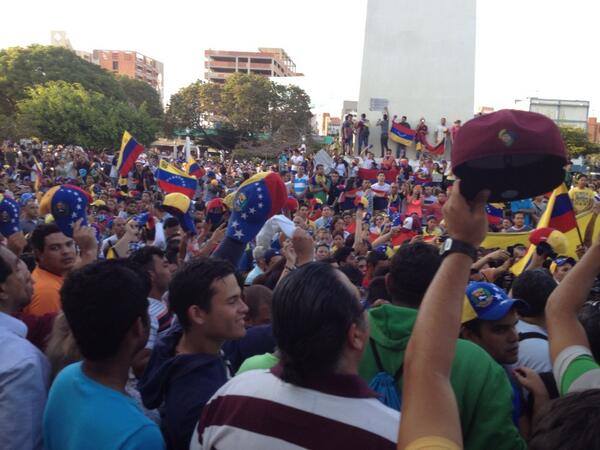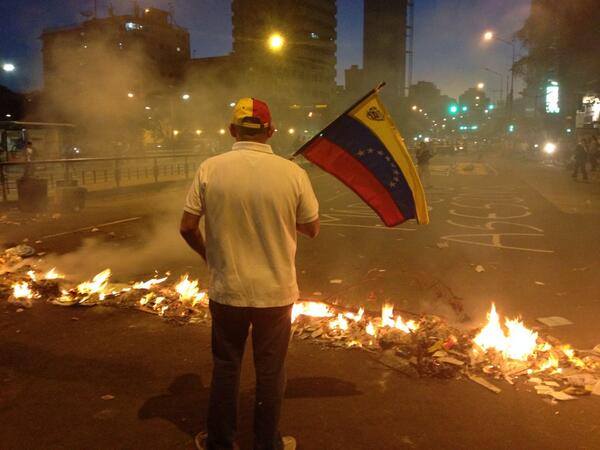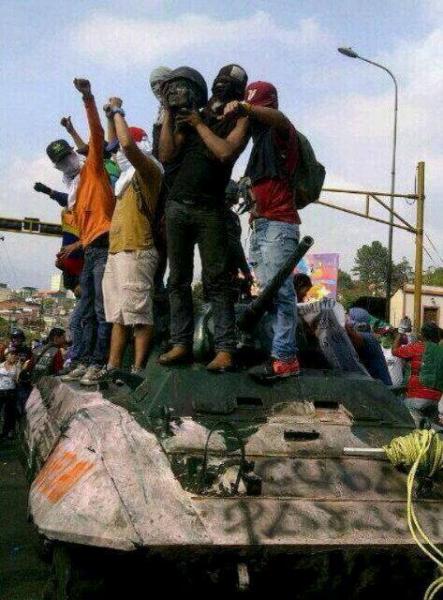Venezuela: Faces Of The Protests

What started as a student protest now involves citizens from all walks of life, going to jobs in the morning and then manning barricades in the street in their free time. The protests have continued through Carnival, and through the one year anniversary of the death of former president Hugo Chavez, the death toll of the Venezuelan protests has now reached 19.
As the protests head into their fifth week, Neon Tommy spoke to several Venezuelan citizens involved either directly or indirectly with the situation throughout the country.
Jeanette Moreno, a journalist living in Venezuela, was present on the day (Feb. 12) that violence erupted when police fired upon a peaceful student protest seeking to address high inflation, crime, and corruption in the government. According to El Universal, students were surrounded and entrapped so that they couldn’t avoid the police’s sudden and brutal assault, which killed two.
When asked about the current state of the protests, Moreno discussed the escalation of violence against the protestors.
“The police have been using a grotesque amount of smoke bombs,” Moreno said. The worst of the violence has been conducted by gangs of pro-government motorcyclists called motoristas or colectivos, who have wreaked havoc at initially peaceful demonstrations.

“Here, there wasn’t a Carnival," she replied.
Many independent radio stations and publications have been shut down in Venezuela for reporting on the situation, leading many to take to social networks to voice their opinions. Newspapers that are available grow thinner by the day on account of a paper shortage. Moreno explained the struggle of remaining radio and paper news sources.
“It’s difficult figuring out how to communicate what you want to say in such a way as to avoid getting shut down.”
Most of the protesting has been done by the middle and upper classes of Venezuela, while working class families have been more reluctant to get involved due to the government’s socialist stance.
Candelaria, a private business owner from Caracas, told Neon Tommy about the food shortages that have effected households on all social levels.
“When you have to go to three or four places to get what you need to eat, that’s time lost," Candelaria said. "While people are preoccupied with that, they don’t think about the government or what the government does."
"It’s one of the ways the government can stay in power.”

“I think the government is weaker today, the world now knows about the reality of Venezuela," Candelaria said. "The government has paraded as democratic, but now people outside of the country are seeing that’s not the case.”
Candelaria went on to explain that the sparseness of the international community's response was in part due to the power of Venezuelan oil money.
“There’s a lot of money in this country, but it hasn’t been used to develop infrastructure," she said. "Other Latin American countries won’t support the protests because they’re receiving a lot of money from the Venezuelan government.”
Even with all the tumult, the government continues to produce approximately 2.88 million barrels of oil per day.
While it is unclear what effect protests will ultimately have on Maduro’s government, one thing that is certain is the determination of those on the streets.
Moreno said that on Feb. 12th she was able to leave before the shooting began. When a student criticized her for retreating, she told him, “It is not necessary to die here. We have to keep fighting.”
But even with the people’s impressive resilience, it will take a response from the international community, which has for the most part remained silent, to produce much-needed results.
Reach Staff Reporter Andre Gray here.



